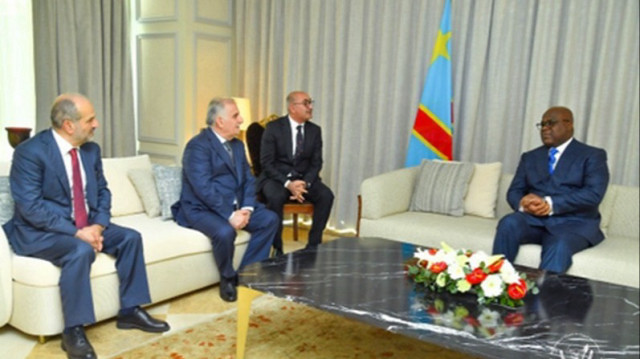
In a major step toward sustainable urban development, Türkiye’s leading Albayrak Group has launched a high-service bus project for Kinshasa, the capital of the Democratic Republic of Congo (DRC). As part of this initiative, a preliminary memorandum of understanding (MoU) was signed between the Albayrak Group and the Congolese government. The project aims to tackle Kinshasa’s chronic traffic congestion while offering innovative solutions to environmental, economic, and social challenges.

The agreement, signed in Istanbul during a visit by a high-level delegation led by Kinshasa Governor Daniel Bumba Lubaki, marks a pivotal moment in the partnership between Albayrak Group and the DRC. Congolese President Félix Tshisekedi has expressed his satisfaction with the project, underscoring its potential to improve urban mobility and enhance the quality of life in Kinshasa, a city of 17 million people.

The project’s first phase will involve constructing a 27-kilometer Bus Rapid Transit (BRT) line connecting the city center to Kinshasa’s international airport. With segregated lanes on the existing highway, the new system will reduce travel times from 180 minutes to just 65 minutes.
The Congolese delegation—comprising senior officials, political leaders, and technical experts—visited Istanbul from December 10 to 13, 2024. During their visit, they explored the city’s advanced metrobus systems, including a symbolic journey across the 15 July Martyrs Bridge linking Europe and Asia. The experience demonstrated how such infrastructure can transform mobility in a metropolitan setting.


Kinshasa faces a multitude of structural challenges, including insufficient transport infrastructure, severe traffic congestion, and high air pollution levels. Innovative and scalable solutions are essential to meet the demands of its rapidly growing population. This new BRT system promises to:
• Enhance Urban Mobility: The system will feature 27 stations and operate with departures every 30 seconds, enabling it to handle up to 24,000 passengers per hour per direction.
• Reduce Greenhouse Gas Emissions: By decreasing private vehicle use, the project will contribute to cleaner air and a healthier urban environment.
• Provide Modern Infrastructure: The project includes parking facilities for 260 vehicles, maintenance hangars, refueling stations, and pedestrian bridges.
• Stimulate Economic Growth: By generating local employment and promoting social inclusion, the project will have a positive economic and social impact.
• Improve Accessibility: Affordable and reliable public transit will make commuting easier for citizens from all walks of life, reducing social inequalities.





The project’s first stage involves technical studies, topographic surveys, and route planning. Construction of the E2 line is expected to be completed within 15 months. The second phase will extend the network with the E1 line, further integrating the city’s transportation infrastructure.
Two committees have been established to ensure seamless implementation:
1. Joint Coordination Committee: Overseen by Kinshasa’s Governor and Albayrak Group’s leadership, this committee will handle political and strategic issues.
2. Joint Technical Committee: Comprising experts from both parties, this committee will develop and execute actionable plans.
The Kinshasa BRT project embodies a vision for a greener, more inclusive, and prosperous future. By addressing pressing urban challenges, this initiative sets a benchmark for sustainable development in Africa and highlights the transformative potential of strategic partnerships.


